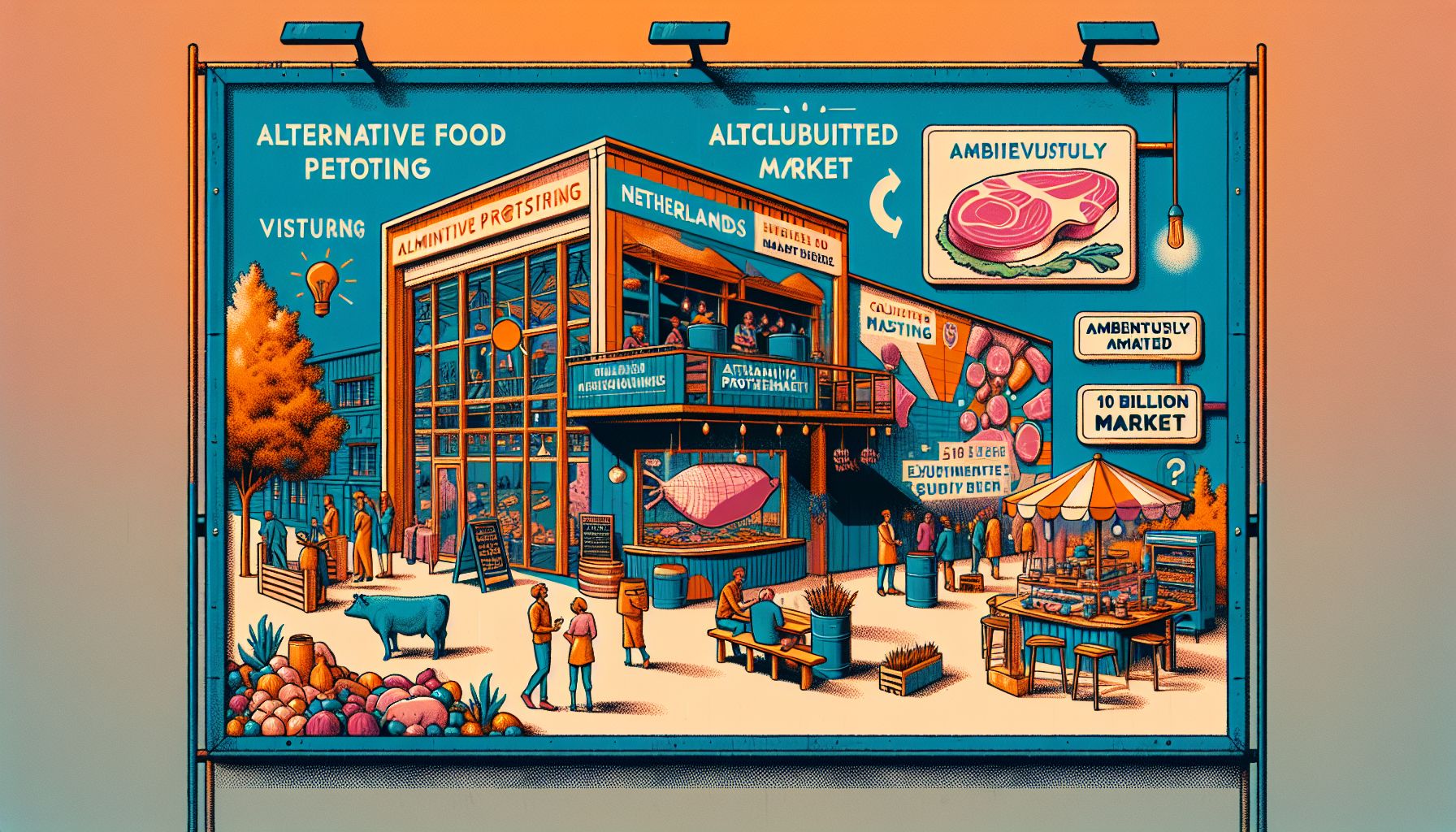Netherlands Pioneers Alt-Protein Innovation with Public Tastings

Wageningen, Tuesday, 23 July 2024.
The Netherlands leads EU innovation in alternative proteins, allowing public tastings of cultivated meat. This progressive approach aims to tackle scale-up challenges and foster a €10B market by 2030, positioning the country as a global leader in sustainable food systems.
The Alt-Protein Landscape
The Netherlands’ foray into alternative proteins is a multifaceted effort that combines innovation in agritech, healthtech, and food systems. At the heart of this initiative are Dutch firms like Foodvalley and Invest-NL, which have been pivotal in pushing the boundaries of food technology. Their recent report outlines strategic recommendations to accelerate the production of alternative proteins, highlighting the importance of creating innovation clusters and regional hubs to overcome scale-up challenges[1].
Key Players and Their Vision
Emmanuel Anom, Lead of Shared Facilities at Foodvalley, and Michiel Strijland, Business Development Manager at Invest-NL, emphasize the role of strategic investments and supportive financial mechanisms. They argue that the Netherlands has the potential to become a global leader in sustainable protein production through shared facilities, specialized equipment, and flexible access models. These hubs are designed to empower startups by providing access to infrastructure and expertise, crucial for transitioning from R&D to commercialization[2].
Economic and Environmental Impact
The alternative protein market in the Netherlands is projected to exceed €10B by 2030. This growth is driven by declining production costs, technological advancements, and evolving consumer preferences. The move towards alternative proteins is not just an economic opportunity but also a significant step towards a climate-neutral food system. By reducing reliance on traditional meat production, the Netherlands aims to lower its carbon footprint and promote sustainable agricultural practices[1].
How It Works: Cultivated Meat
Cultivated meat, also known as lab-grown meat, is produced by cultivating animal cells in a controlled environment. This method eliminates the need for raising and slaughtering animals, offering a more ethical and sustainable alternative to conventional meat. Companies like those in the Netherlands are leading the charge by allowing public tastings of cultivated meat, a move that reflects the country’s forward-thinking approach to food systems. Cesare Gargioli, an associate professor of biotechnology, has been at the forefront of this innovation since 2021, working to improve the visual and taste qualities of lab-grown meat[3].
Challenges and Recommendations
Despite the promising outlook, Dutch startups in the alternative protein sector face several challenges, including limited access to facilities, high operational costs, regulatory complexities, and a funding gap between R&D and commercialization. The fragmented manufacturing landscape further complicates scaling up. To address these issues, the report by Foodvalley and Invest-NL recommends establishing regional hubs with cutting-edge facilities, backed by public-private partnerships. Financial support in the form of vouchers, subsidies, and co-investment funds is also crucial to ease the financial burden on companies and support their growth[1][2].
Global Comparisons and Future Outlook
The Netherlands can draw inspiration from best practices in countries like the US, Israel, Germany, and Singapore, which have successfully developed robust ecosystems for alternative proteins. Streamlined regulations, policy incentives, and government support are key to replicating such success. The Netherlands’ proactive stance in allowing public tastings of cultivated meat places it ahead of many EU countries, positioning it as a potential leader in the alternative protein revolution. As the country continues to innovate, it could set a precedent for others in the EU and around the world[1][2].

